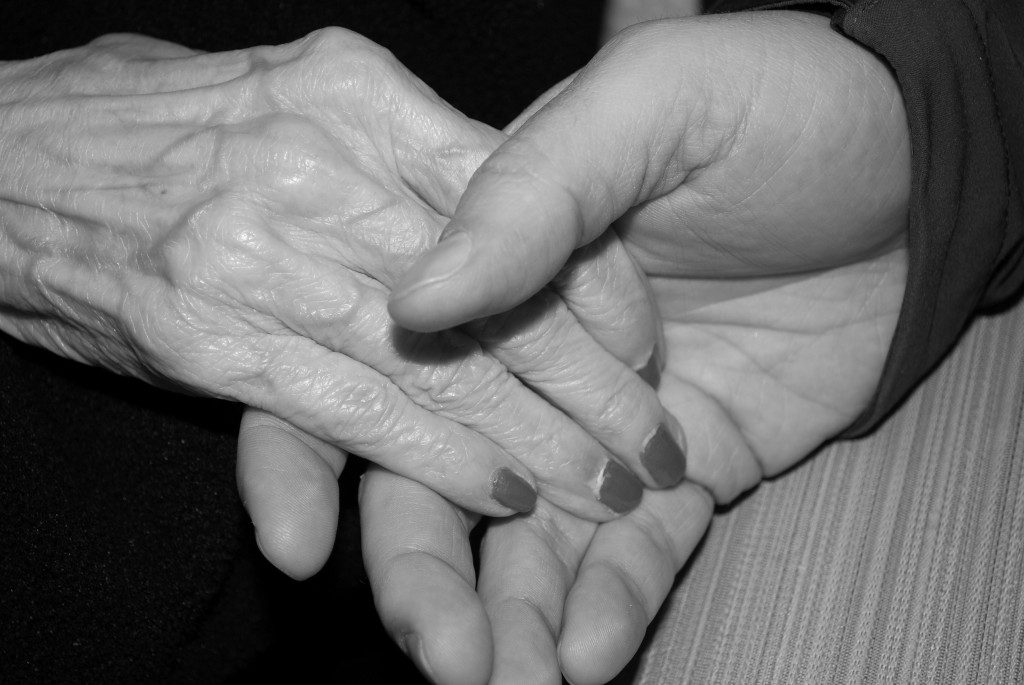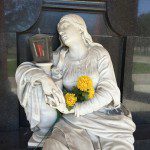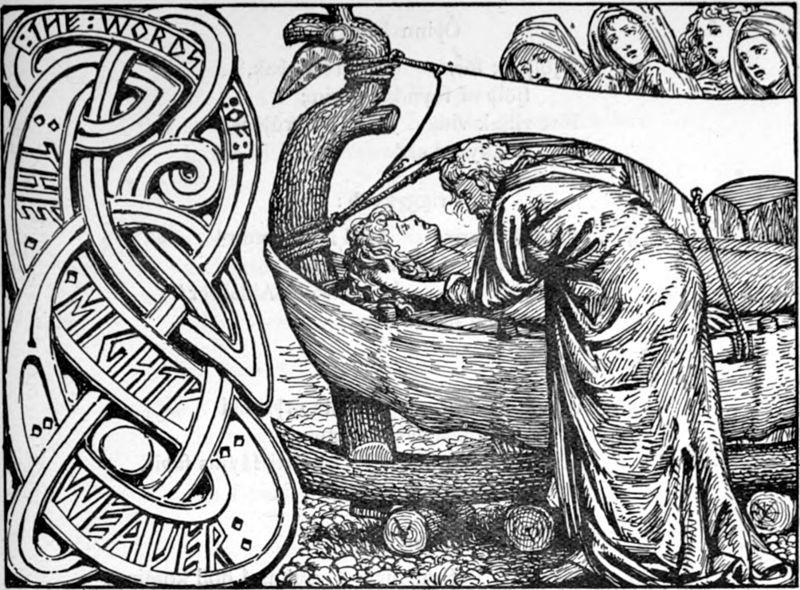
Today’s post is adapted from my latest column for Iowa Episcopal Connections:
In April, my mother-in-law died after several years in a nursing home. In June, my 86-year-old mother was admitted to the memory care unit of a nursing home. So over the past few weeks, my husband and I have had to deal with the complex and often painful issues that arise in the last stages of someone’s life.
We’re hardly alone in this. I’m struck, in fact, by how many of our friends are facing similar situations with their parents. There’s a comforting sense of solidarity in our conversations, as we realize the challenges we’re facing are universal. We all are born, and we all will die. While there are many variations in how the end arrives, usually death comes first to our parents, and this process gives them one last chance to teach us some important life lessons.
Some of these lessons may not be particularly profound, but they are useful:
The first is that there is no need to save every rubber band that comes into your house. The same is true for plastic butter containers, calendars from any year prior to 2016, and magazines that you think you’re going to read someday but haven’t.
Second, while we don’t normally think of blessings arriving in the form of a dumpster, those big metal boxes can be a godsend, especially if you have 40 years of stuff in the attic to unload.
Third, if you’re an in-law rather than a blood relative, it’s best to keep your head down and your mouth shut.
And fourth, sibling dynamics don’t really change as you grow older. You still play out the same roles in the family you had as children, only with gray hair and more wrinkles.

But there are other, more serious, spiritual lessons to be learned as well.
Many religions believe that contemplating death, either our own or that of other people, is a powerful spiritual tool. Medieval monks used to keep a skull on their desk to remind them of their mortality, for example, while Buddhists are told to meditate in graveyards.
An aging parent can teach similar lessons, I think. We look at them and see what lies ahead for us. Or, alternatively, we see what obstacles we hope to avoid in our own futures.
I remember being at a talk given by the Franciscan priest and author Richard Rohr. Someone in the audience introduced himself as a hospice nurse, and asked Rohr why so many people seem to have such a hard time with the final stage of their lives. Rohr said this: “You don’t want to leave your spiritual homework until just before the test.”
I’ve thought of Rohr’s response a lot since then, especially in these past weeks. For both my mother and mother-in-law, it was excruciatingly hard to give up control of their lives. For Alice the hardest part was not being in charge of a home. For my mom, it was driving.
It’s been easy to get exasperated with them—until my husband and I realized all the ways in which we also cling to having total control over our lives. While the First Step in Alcoholics Anonymous is admitting that someone is powerless over alcohol, the First Step in Facing Aging is similar: We admit we are powerless in the face of the relentless advance of time.

Once you admit that, it becomes much easier to be open to a power greater than ourselves. And that’s part of why doing your spiritual homework in advance of the test, in advance of the end of the life, is important.
That homework is different for each of us. Life seems to hand us the challenges we need to grow, precisely tailored to our own neuroses and limitations. The homework for these life lessons is usually no fun at all. But there are spiritual disciplines that can help: Self-honesty. Compassion. Prayer. Meditation. Silence.
And in these ways, we can practice giving up control (which is always an illusion anyway). We can do this well in advance of the time when our independence will be taken from us by an outside force, whether that’s illness or a doctor taking away our car keys.
Finally, I think the last lesson our aging parents can teach us is that our families, as wonderful as they may be, should not be everything to us. Over and over again, in fact, the world’s great spiritual teachers have told their followers that family and clan should not mark the limits of their care and concern. The nuclear family can be a wonderful thing, but it is not our entire family. We are part of a larger communion of saints, some on earth and some in heaven, who can support as we go through the inevitable trials of life.
I’m encouraged by the ways in which the spirituality of aging is gaining more attention these days in many faith communities.
For here’s the paradoxical nature of illness and advanced age: They can isolate us from the rest of the world. But they can also connect us to the rest of the world. To paraphrase a line from songwriter Leonard Cohen, vulnerability opens cracks where the light can shine through—-and that’s a lesson we need to learn again and again throughout our lives.
Stay in touch! Like Holy Rover on Facebook:
















